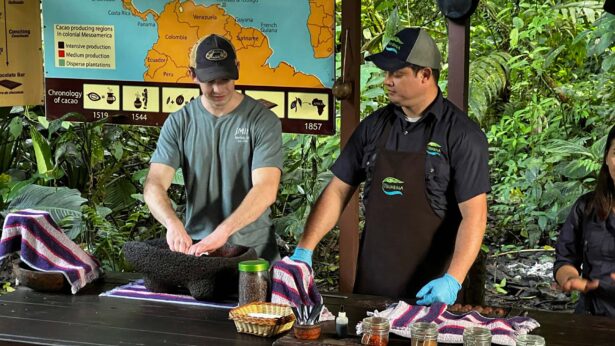
—Kaley Walker, County Government Consultant, County Technical Assistance Service
Tennessee’s complex challenges resemble a tangled ball of yarn or a pitted mountain to climb. No single story can capture all the stories. Lives intersect and interconnect between these challenges. Problems exist with overlaps and blurred boundaries.
The University of Tennessee System has labeled such problems Grand Challenges:
- Substance Misuse
- K-12 Education Needs
- Rural Community Decline
Grand Challenges are volatile, interconnected, complex problems that create uncertain futures. They cannot be solved by linear thinking or single policy changes. The paths forward can be obscure and difficult to predict.
For example, a child struggling in school might be the result of a difficult homelife with a parent who has an addiction problem, the outcome of an unnecessary prescription or one bad choice. Now, that parent can’t pass a drug test and so they are without a job along with hundreds of others. The problem spreads. The company can’t find enough people to fill jobs and leaves the county. Tax revenues drop, followed by school funding. One issue compounds another, and the difficulties morph and impact lives that once seemed far removed.
There’s no one point of blame here. No one formula to fix it. It’s too gnarly for that. These wicked problems are like knots in tangled thread. Bound and wound together in a chaotic mess that takes care, steady hands and patience to not break the thread into pieces scattered on the floor.
We often think of such things as impossible to overcome and throw our hands up in exhaustion, stopping before we start.
That’s understandable.
But it’s not acceptable.
The UT System—with its statewide presence through its campuses, institutes, faculty, staff, alumni and students—has the unique position to take a leadership role in solving these challenges. In fact, it already has engaged at various levels with projects, programs and people.

—Joseph Brooks, Claiborne County Mayor (Knoxville ’04, ’12)
Substance misuse, a heavy burden everywhere, has been profoundly catastrophic for the eastern Appalachian areas of the state, destroying families, forcing businesses to move or close, raising crime rates, overcrowding prisons, filling child protective services and foster care, and enabling an endless list of other associated pains.

—Janet C. Hanvy, Director Of Teacher Education, Ut Southern
K-12 education needs, such as attracting and retaining teachers and funding schools, are in response to overcrowded classrooms, hindering the individual educational experience that students need to thrive. For many rural students, exposure to opportunities and careers beyond what they see is a whole other obstacle they must overcome.
Rural community decline is deeply connected in many ways to substance misuse. Many of Tennessee’s rural communities experience stagnant economic growth, difficulty retaining and attracting talent and businesses, and budget struggles to fund infrastructure projects like sewer and water lines, roads and broadband connections.

—E.L. Morton, Mba Director Of Workforce Services, East Tennessee Human Resource Agency (Knoxville ’89)
While they pose difficulties, the university sees these Grand Challenges as a North Star for collaboration between the public and private sector and among our own campuses, institutes and alumni. By harnessing the collective power of human relationships, research, science, technology and imagination, amazing things can be achieved.

—JAKE BYNUM, WEAKLEY COUNTY MAYOR (MARTIN ’06)
For those alumni living in the state, the reasons for getting involved are hopefully apparent. But, why should alumni living in faraway places be bothered with what’s going on in Tennessee?
“No matter if you live here or not, this state gave you the opportunity to get your education. This is all of our state, and these are our people, and we take care of each other,” says Rob Mathis (Knoxville ’97), mayor of Cocke County, a Tennessee county riddled with some of the most severe Grand Challenges.
The future of Tennessee is yet to be made. With a concerted effort, we all have the opportunity to remedy these challenges and create the future every Tennessean deserves.

—ROB MATHIS, COCKE COUNTY MAYOR (KNOXVILLE ’97)
Contributors to this article:
Rob Mathis
Cocke County Mayor
(Knoxville ’97)
Joseph Brooks
Claiborne County Mayor
(Knoxville ’04, ’12)
Kaley Walker
County Government Consultant, County Technical Assistance Service
Tim Waldo
Workforce Development Consultant, Center for Industrial Services
(Knoxville ’21)
Jake Bynum
Weakley County Mayor
(Martin ’06)
Janet C. Hanvy
Director of Teacher Education, UT Southern
E.L. Morton
MBA Director of Workforce Services, East Tennessee Human
Resource Agency (Knoxville ’89)
Danny Cook
Lake County Mayor
Lee Harris
Shelby County Mayor
Weston Wamp
Hamilton County Mayor
(Knoxville, ’09)



